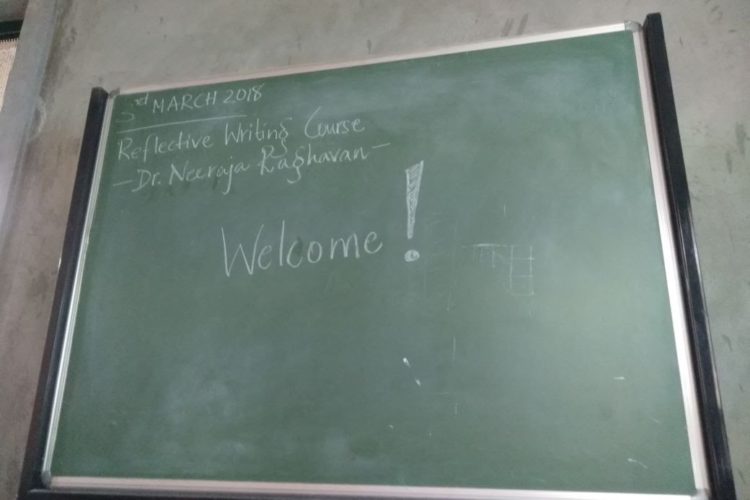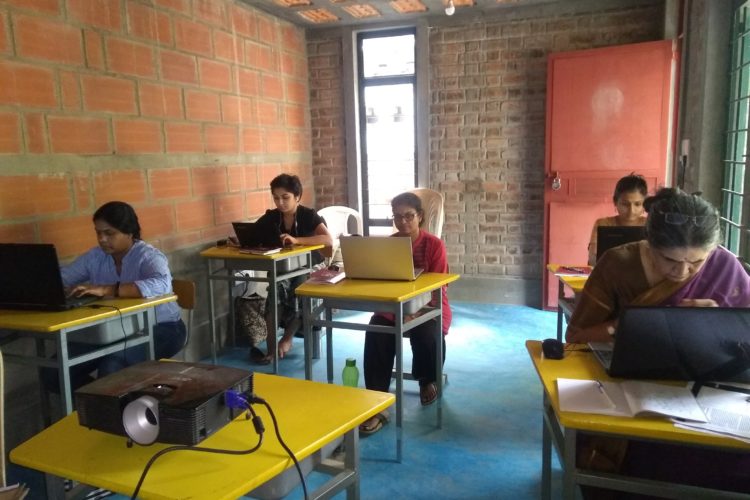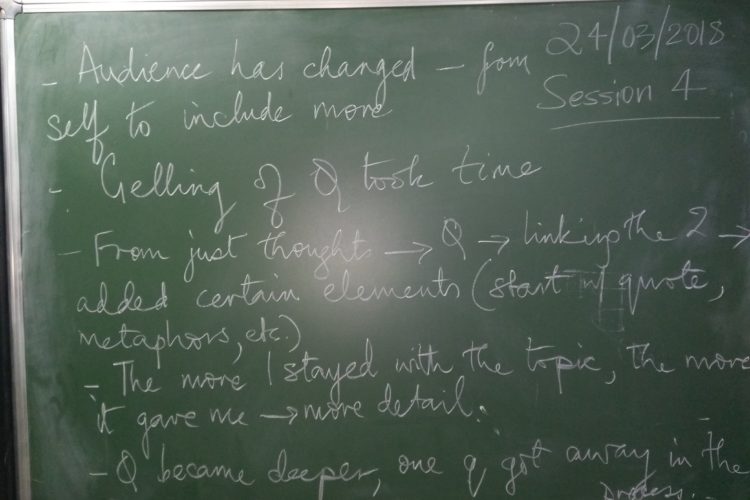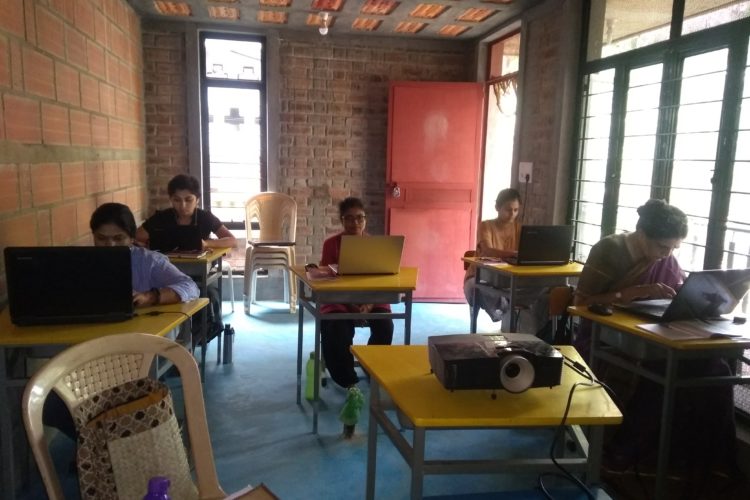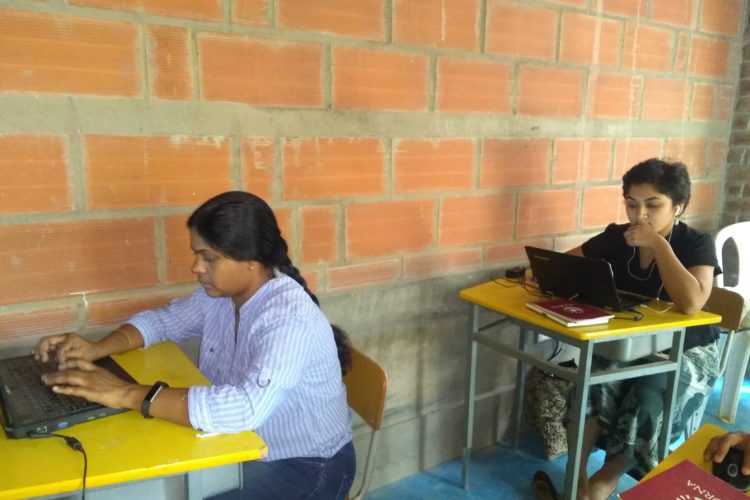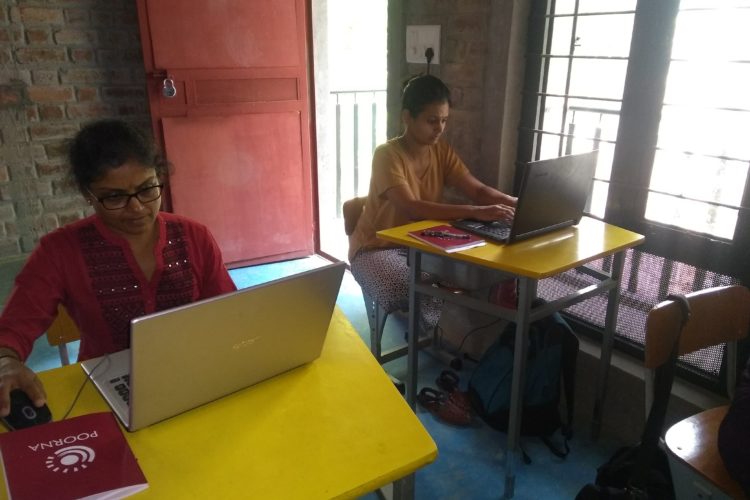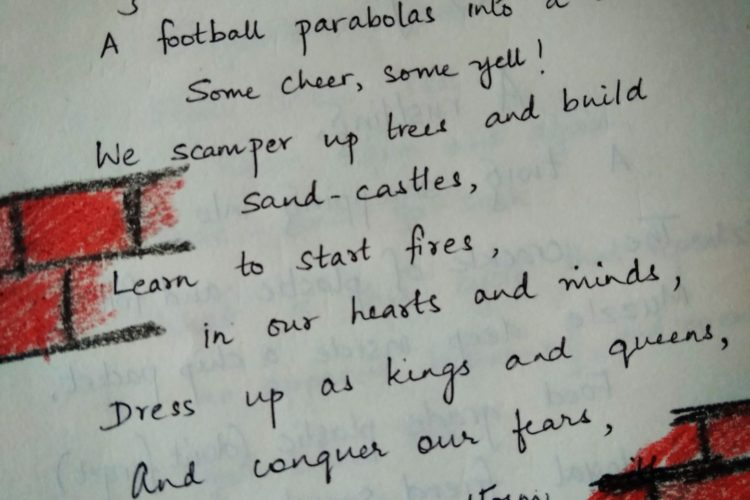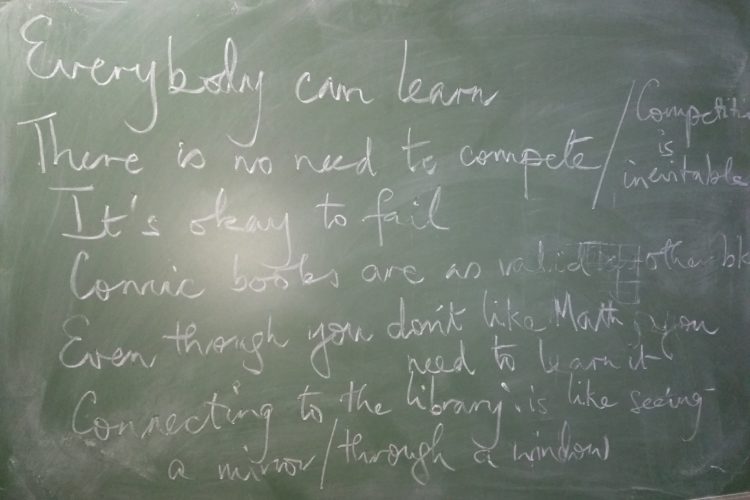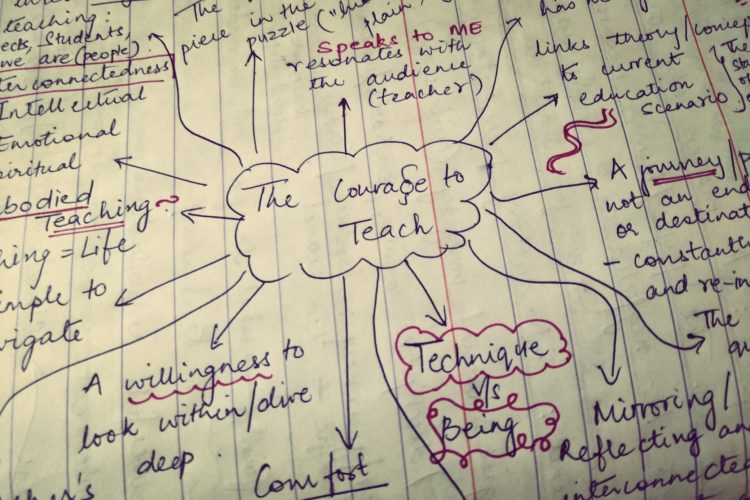Reflective Writing for teachers
Duration of contact classes: 18 (plus 6 at-home hours)
Course developed by: Neeraja Raghavan
Given the packed day of most teachers, they can swiftly get into a routine that precludes pausing and reflecting on the valuable insights that staffroom exchanges, staff meetings and classroom transactions can offer. With the numerous repetitive tasks that demand a teacher’s attention (correcting notebooks, preparing lessons, arranging school events, attending meetings, completing the syllabus, etc.), it often happens that a teacher gets into an efficient – and worse, mechanical – routine without even realising this. This can result in the teacher missing opportunities to reflect and gain valuable learnings, as the overpowering momentum of the school’s demands swamp her attention and energy. It has been found [Raghavan (2015), Gorlewski and Green (2011)] that the simple act of stepping back and noting down the day’s/week’s events brings to the surface many powerful learnings that enable a teacher to meet day-to-day challenges with a fresh mind. This course will expose participants to the fruits of reflective writing.
Objectives of the course
- To appreciate the difference between a factual report and a reflective report
- To draw upon everyday life for writing journal entries/reflective pieces
- To critique peers’ writing so as to enhance the reflective element in their writing
- To appreciate the power of reflective writing in enhancing one’s teaching practice
Course Design and structure
Overall Duration of the course: 18 contact hours, 6 at-home hours
Frequency of contact: Four sessions of four hours each, scheduled as per the School’s calendar, in consultation with the course instructor.
Other modes of study: Reading two samples each of descriptive writing, report writing and journal/reflective writing; drawing out the distinctions; writing a report, journal entry as well as a descriptive piece and then turning each of these into reflective pieces. Reading and discussing recommended readings that highlight the power of reflective writing. Critiquing peers’ reflective pieces so as to enhance the reflective element in their writing will be the culmination of the course.
The course will be a blend of contact and at-home work. Each of the FOUR 4-hour sessions and ONE final 2-hour session will be interspersed with one two-hour session of at-home work by the student. This work will be evaluated by the instructor over email, with the very last piece of writing collectively discussed during the last ONLINE session. Since each four hour session will be held during one week with the expectation of a two-hour investment by the student over the following week, the entire course will be spread over a total of 4+4 = eight weeks.
Methods of transacting the course
The course will be conducted through group reading, writing and discussion, interspersed with Instructor feedback as well as peer critique.
Timetabling
As indicated above, this course will entail four 4-hour face-to-face sessions, with additional hours allotted to out of class work. On an average, two hours of such work will have to be done by the participant for every 4-hour session.
Methods of Assessment
Assessments will be both Instructor driven as well as peer driven. The former will be based on specific criteria (that will be shared with students prior to submission of assignments) while the latter will evolve from criteria that are collectively drawn up. Class participation will also be factored into the assessment for the course. Field Work Possibilities: Actual teaching experiences (including staff meetings, Parent Teacher Meetings, classroom observations, School Annual Day Programmes, etc.) can be used by in-service teachers for the purpose of writing reflective pieces. Alternatively, classroom observations can be done specifically to write factual reports as well as reflective pieces.
Readings
The following list of essential and recommended readings would form the basis for class discussion:
- Neeraja Raghavan and Vineeta Sood (Orient Blackswan, 2015) THE REFLECTIVE TEACHER.
- Pithouse, K. (2011). “The future of our young children lies in our hands”: Re-envisaging teacher authority through narrative self-study. In C. Mitchell, T. Strong-Wilson, K. Pithouse, & S. Allnutt (Eds.), Memory and pedagogy (pp. 177-190). New York: Routledge.
- KAREN E. JOHNSON and PAULA R. GOLOMBEK (September 2011), The Transformative Power of Narrative in Second Language Teacher Education TESOL Quarterly, Vol. 45, No. 3, Narrative Research in TESOL pp. 486-509
- Julie Gorlewski and Katie Greene (March 2011), Research for the Classroom: The Power of Reflective Writing The English Journal, Vol. 100, No. 4 pp. 90-93
- Ratna Singamsetty and Neeraja Raghavan (2015) Teacher Empowerment through Action Research
- Palmer, P. (2007) The Courage to Teach: Exploring the Inner Landscape of a Teacher’s Life. Wiley: San Francisco.

